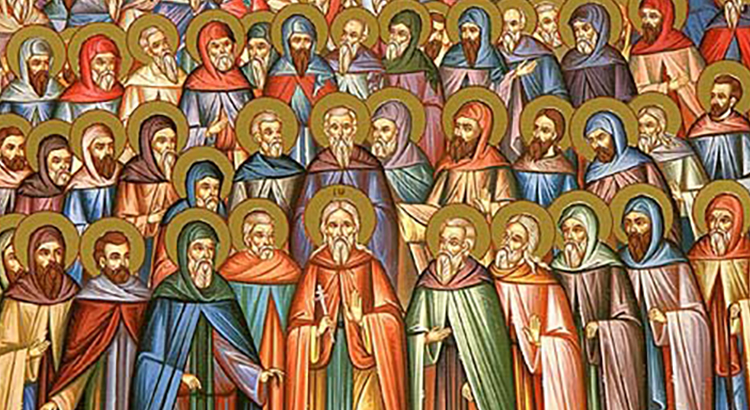Memory of the Saints and the Prophets
Reading of the Word of God
Alleluia, alleluia, alleluia
You are a chosen race,
a royal priesthood, a holy nation,
a people acquired by God
to proclaim his marvellous works.
Alleluia, alleluia, alleluia
Judges 9,6-15
All the leading men of Shechem and all Beth-Millo then met and proclaimed Abimelech king at the oak of the cultic stone at Shechem. News of this was brought to Jotham. He went and stood on the top of Mount Gerizim and shouted at the top of his voice: Hear me, leaders of Shechem, so that God may also hear you! One day the trees went out to anoint a king to rule them. They said to the olive tree, 'Be our king!' The olive tree replied, 'Must I forgo my oil which gives honour to gods and men, to stand and sway over the trees?' Then the trees said to the fig tree, 'You come and be our king!' The fig tree replied, 'Must I forgo my sweetness, forgo my excellent fruit, to go and sway over the trees?' Then the trees said to the vine, 'You come and be our king!' The vine replied, 'Must I forgo my wine which cheers gods and men, to go and sway over the trees?' Then the trees all said to the thorn bush, 'You come and be our king!' And the thorn bush replied to the trees, 'If you are anointing me in good faith to be your king, come and shelter in my shade. But, if not, fire will come out of the thorn bush and devour the cedars of Lebanon.'
Alleluia, alleluia, alleluia
You will be holy,
because I am holy, thus says the Lord.
Alleluia, alleluia, alleluia
It was a very confusing period in Israel's history. Personal ambitions and idolatry marked so much of God's people and weakened them. Abimelech the son of Jerub-Baal, who proclaimed himself king without being called by God, shows the perversion of this period. Abimelech went to Shechem unto his mother's kin, and convinced them using the argument that he was of their own blood. In fact what counts is not being linked by blood but to God's will. Abimelech killed his own brothers not because they had betrayed God, but to assert his power. Jotham was the youngest of Gideon's sons and had survived the massacre of his relatives and he began to cry out against Abimelech. Jotham is the prophetic voice who condemns Abimelech and those who elected him and announces that punishment would come soon. The apologue of Jotham that the text reports speaks of three trees, the olive tree, the fig tree and the vine, which are the three most common plants in the region. The moral of this apologue is that if these there plants, very useful in their filed, became king it would be very dangerous. It would be something completely out of place. They may fidget but they merely show their vain ambition and foolishness. And if a bramble, which has no intelligence, is made king then it is clear how this can be dangerous. And in any event it is useless; its order to take refuge under its shade is a bitter irony. On the contrary a dried bramble catches fire easily and spreads easily and it could become a danger even for the Cedar of Lebanon, the most majestic tree in the east. Further on the text speaks of the enmity between Abimelech and the lords of Shechem; the latter set ambushes against Abimelech generating an endless chain of violence. Abimelech reacts and punishes and kills, he even destroys the city and sprinkles it with salt. His end is inglorious for a fighter, he is wounded by a woman who defended the town. Violence produces violence and those who use it also become victims themselves.
